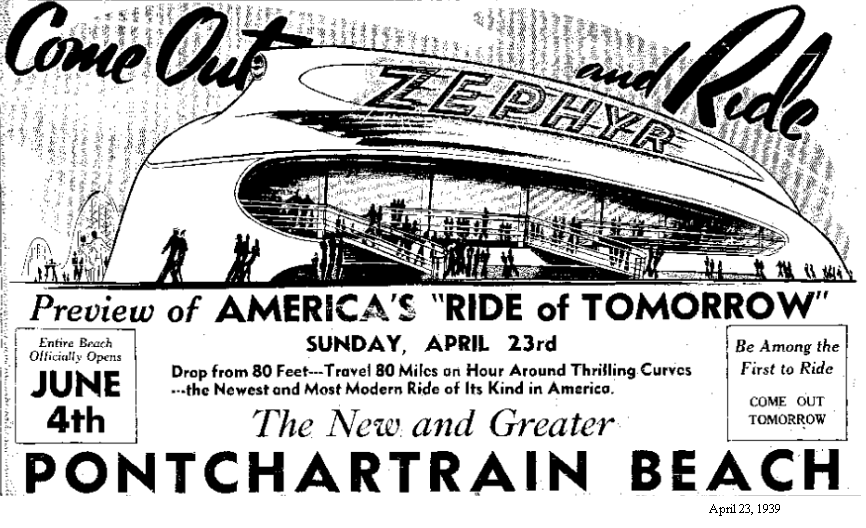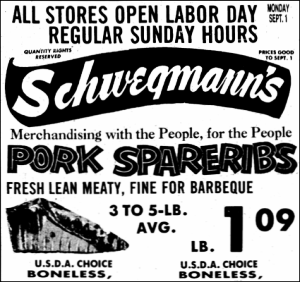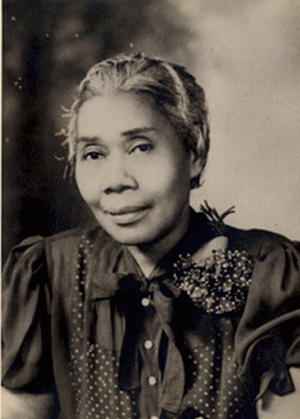|
Today in New Orleans History |
|
|
June 12


 Fannie C. Williams, an educator, was born on March 23, 1882
in Biloxi, Mississippi. In 1904, she graduated from Straight College, a school that later merged with New Orleans University.
In 1920, she received two degrees from Michigan State College, a Bachelor of Arts and a Bachelor of Pedagogy.
When she returned to New Orleans in 1921, Williams taught at Valena C. Jones Normal School, a school established to train
African American teachers and then certify them to work in the school system. She would later serve as principal of the school.
She was instrumental in having a nursery and a kindergarten class established for African Americans in the public school
system and established an annual child health day when medical professionals visited schools and performed their service free
of charge. Her influence extended beyond the Orleans Parish School system. She participated in three
White House Conferences during the administrations of U. S. Presidents Herbert Hoover, Franklin Roosevelt, and Harry Truman.
Williams served as president of the National Association of Teachers in Colored Schools and on the board of directors of
Dillard University and Flint-Goodridge Hospital. In 1977, she was the recipient of awards from the
American Teachers Association and the National Teacher's Association. She died in 1980 at the age of 98. (NOPL) Fannie
C. Williams Charter School in New Orleans East is named for her. See also http://fcwcs.org/about-fcw-charter/who-was-fannie-c-williams/  

To receive an update for each day in New Orleans
history, join our facebook page
- Today in New Orleans History
Tweet
Gregory Michael Aymond, born in New Orleans on November 12, 1949, became the fourteenth Archbishop
of New Orleans on June 12, 2009.
Born in New Orleans on September 24, 1871, jazz cornet and alto horn player Isidore John Barbarin
was a mainstay of the New Orleans jazz scene in the decades around the turn of the 20th century.
He learned to play the cornet at age 14, then played in various New Orleans brass bands including the Onward Brass Band,
the Excelsior Brass Band, and Papa Celestin's Tuxedo Brass Band. He can be heard today in a 1945 Bunk Johnson and a
1946 Original Zenith Brass Band recording. Barbarin died in New Orleans on June 12,
1960. He left a New Orleans musical legacy; sons Paul, Louis, Lucien, and William as well as his grandson, Danny
Barker. Huey Long Filibusters Described as "the most colorful, as well as the most dangerous, man to engage in American
politics," Louisiana's Huey Pierce Long served in the Senate from 1932 until his assassination less than four years
later. Today, visitors to his six-foot, eight-inch bronze likeness in the U.S. Capitol's Statuary Hall see this master of
the Senate filibuster captured in mid-sentence. Long gave
the Senate's official reporters of debates a Bible because his wife wanted the reporters to "take those supposed quotations
you are making from the Bible and fit them into your speeches exactly as they are in the Scripture." She might also
have suggested donating a copy of the U.S. Constitution, for he loved to quote his version of that document as well. On June 12, 1935, the fiery Louisiana senator began what would
become his longest and most dramatic filibuster. His goal was to force the Senate's Democratic leadership to retain a provision,
opposed by President Franklin Roosevelt, requiring Senate confirmation for the National Recovery Administration's senior
employees. His motive was to prevent his political enemies in Louisiana from obtaining lucrative NRA jobs. Huey Long spoke for 15 hours and 30 minutes, the second-longest Senate
filibuster to that time. As day turned to night, he read and analyzed each section of the Constitution, a document he claimed
the president's New Deal programs had transformed to "ancient and forgotten lore." Looking around the chamber at several of his colleagues dozing at their desks, the Louisiana
populist suggested to Vice President John Nance Garner, who was presiding, that every senator should be forced to listen
to him until excused. Garner replied, "That would be unusual cruelty under the Bill of Rights." Finished with
the Constitution, Long asked for suggestions. "I will accommodate any senator on any point on which he needs advice,"
he threatened. Although no senator took up his offer, reporters in the press gallery did by sending notes to the floor. When
these ran out, Long provided his recipes for fried oysters and potlikkers. At four in the morning, he yielded to a call
of nature and soon saw his proposal defeated. Two days later, however, he was back, refreshed and ready to fight for a liberalization
of a controversial new plan known as the Social Security Act. Reference: Williams, T. Harry. Huey
Long. New York: Knopf, 1969. From http://www.senate.gov/artandhistory/history/minute/Huey_Long_Filibusters.htm |
|
|

To receive an update for each day in New Orleans history,
join our facebook page - Today in New
Orleans History.
Analytics |


